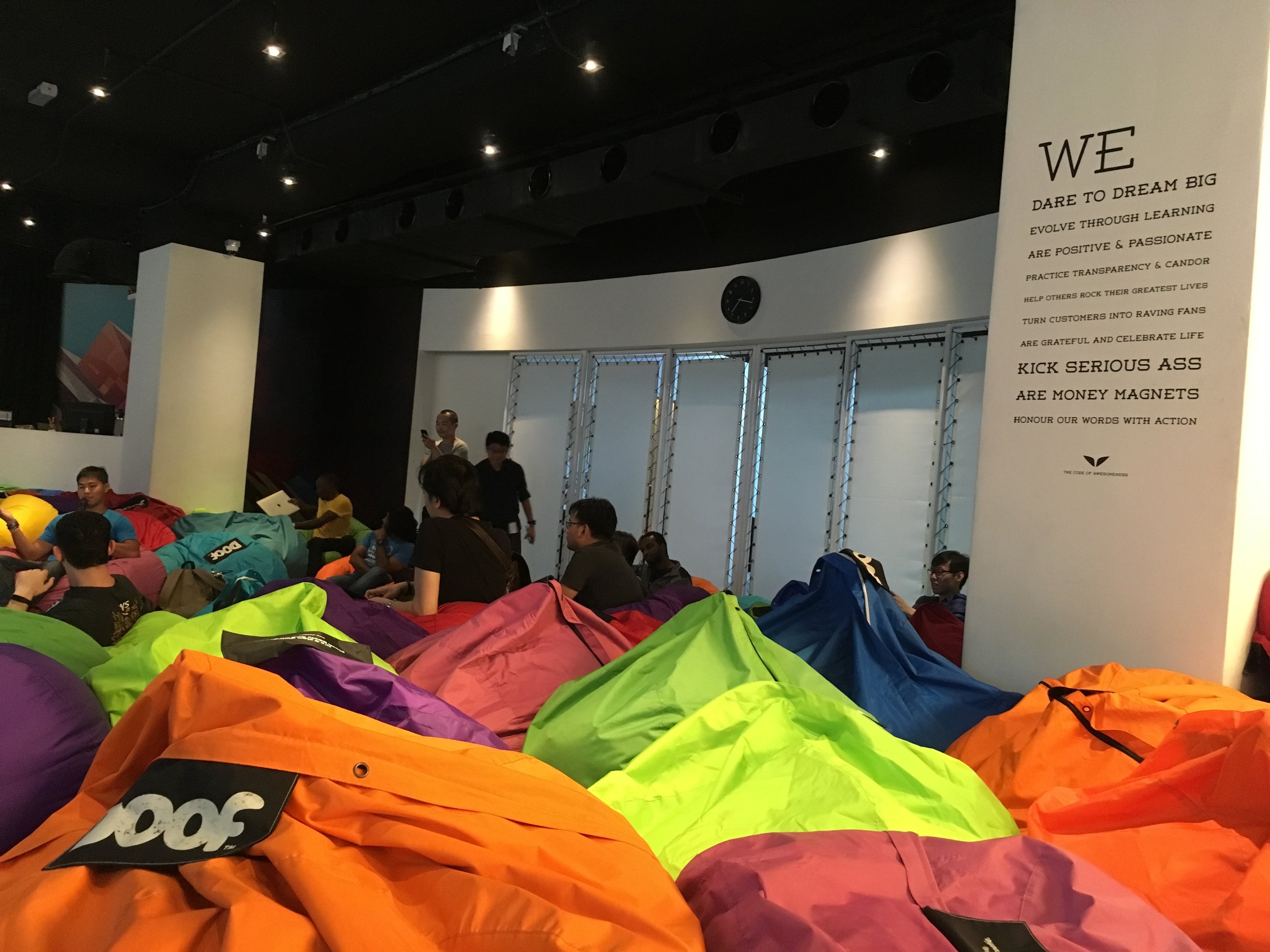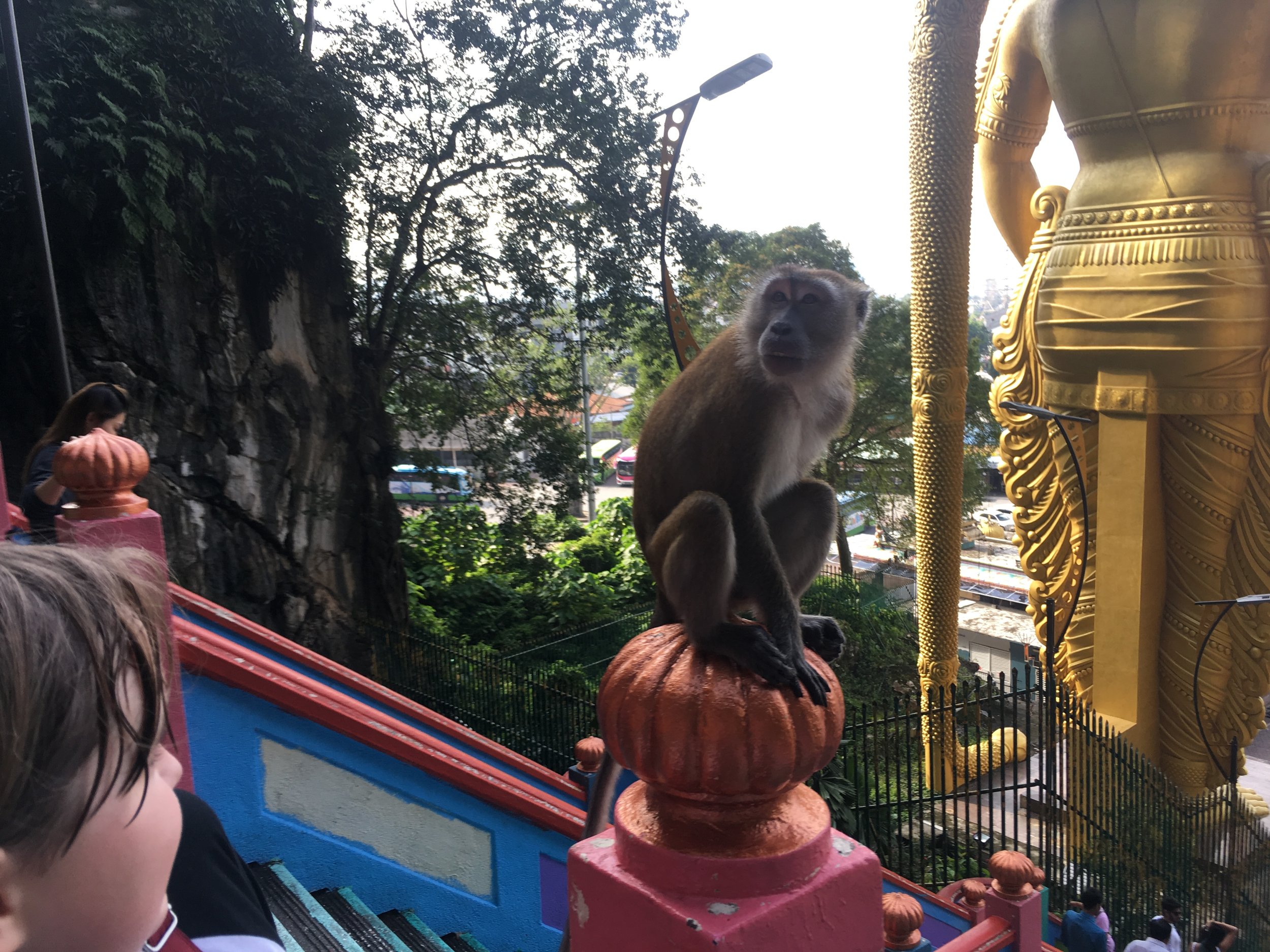RubyConf Malaysia and Getting the Most from a Distant Conference
/I had a great trip to RubyConf MY — thanks for inviting me, Tevanraj! I won’t subject you all to a travel post about Kuala Lumpur, even though it’s awesome. I will talk about some interesting Ruby and development stuff from the conference and before. I’ll also talk about how to get more from a conference far from home.
Kuala Lumpur is a city of gigantic, awe-inspiring buildings. The constant construction goes way above where most cities stop, vertically speaking. Also, click on any other image in this post for bigger pics.
Showing Up Early Can Be a Great Way to Meet Developers
If you show up early or stay late, you can potentially meet speakers, locals, expats and so on. Michael Kohl was briefly in Malaysia rather than Thailand, and I got to hang out with him a bit before the conference. Thanks, Michael! We talked about how his consultancy uses Rails in slightly different ways than the standard out-of-the-box experience, a bit better for experts and a bit less beginner-friendly. It makes sense that we all evolve a style over time, and he had some interesting ideas about how to scale Rails to more complex use cases. If you get a chance to talk to him, maybe online, he has some great ideas about that!
I made it to one local Malaysian meetup. It was a DevOps meetup rather than specifically Ruby, but still a great experience. MindValley sponsors a lot of local development stuff, including RubyConf MY and hosting a lot of different meetups - so going to a meetup there was a great way to see an important piece of the local tech scene.
A neat thing about going: seeing what’s the same and what what’s different. Everybody was talking about the same cloud providers (AWS, Google Compute, Azure) in slightly different amounts (more Azure, very little Google.) The talks were about the same technologies we’re excited about in California (Kubernetes, serverless including Lambda.) More people were working at freelance, consulting and contracting companies, and a lot fewer at tiny semi-insane product companies. I feel pretty confident about our local speakers and SREs — California deserves a lot of its reputation, you know? But the communities aren’t so different.
And the venue could have been in Mountain View or SF. A huge floor of beanbag chairs, surrounded by Avengers models and toys, with a list of company values on the wall that could have been from a California startup just as easily.
If you head to a conference far from home, there’s a lot to be understood. Partly, it’s worth taking some extra time to look around and talk to people. At first, you don’t even know what to look for, so just look around.
Conference Culture Varies, Too
Malaysia was an interesting conference experience: it was hard to get the attendees to talk much to the speakers.
It was mostly a deference thing, I think. I found a guy to talk to the morning of day one (hi, Joe!) and once he figured out I was a speaker, he got a lot quieter. He also thought it was very weird that I was just sitting somewhere in the audience, not right up front in a special section. I said that in the big US conferences, the up-front section was reserved for new folks and people guiding them, not as a high-prestige speakers-and-VIPs section. He seemed to think that was pretty weird too.
RubyKaigi in Japan had some of that deference, too, though not as much as Malaysia. One thing I love about US Ruby conferences is just how clear we make it: new people are our lifeblood, and we need them desperately. That’s… not everybody’s take on it. That makes sense. I don’t feel like most languages, libraries, etc are great about it either. Ruby makes very real technical sacrifices for new-folk-friendliness. It’s hard to imagine, say, C++ doing that.
So: if you’re going to a conference outside the US, or that might otherwise not be run like our main national conferences, it may be worth encouraging folks to talk to you (if you’re a speaker) or to talk to the speakers (if you’re not.) A lot of what people get from conferences is what can’t easily be recorded.
Local Flavor
One of the cool things about a distant conference: you’ll see speakers you otherwise wouldn’t. In Malaysia, the attendees were a pretty even mix of Malaysian, Indonesian and Vietnamese, plus a smaller number of others. The speakers had some classics and well-known speakers from the US circuit (e.g. Aaron Patterson, AllieP, Britt Martin, Nadia Odunayo) but also folks I don’t see as much. Ajey Gore from Go-Jek in Indonesia gave an amazing ending keynote. Janice Shiu of MindValley gave a great talk about algorithmic poetry and pronunciation. Ankita Gupta and Sean Nguyen’s talk on GraphQL was great. I could have seen some of these folks elsewhere — Ankita has spoken at RedDotRubyConf in Singapore, for instance. But it turns out there’s a lot going on that I’d miss. And hey, I haven’t made it to Singapore yet.
And since they’re at the conference, you can sit around and chat with excellent people you wouldn’t otherwise meet. I talked to Ajey a fair bit before his keynote and he’s great company. I like anybody who can talk both tech and business fluently, and he’s a powerhouse in both. But if you introduce yourself to conference folks (and you should!) then you’ll meet awesome people you otherwise wouldn’t… especially if it’s not a conference that’s local to you.
It’s also an excuse to do other stuff. I was lucky enough to be invited to see the Batu Caves with a couple of the other speakers. But when I’m just driving down to Los Angeles, it’s hard to convince myself to see tourist stuff. It’s not far away, you know? The farther from home you are, the better a reason to say “hey, let’s see that fun thing in the tourist guides.” Kuala Lumpur has a wide variety of beautiful places. But so do most cities that would host a conference, you know?
A Distant Conference is Still a Conference
A lot of what you get from being at a Ruby conference is talking to people and kick of inspiration. Great talks are great, but they get recorded. Great technical information is already in thousands of blog posts you can Google.
You may notice, basically, that this post is “go talk to people, go talk to people, go talk to people.”
For an excellent conference experience at any conference anywhere, may I recommend going and talking to people? It’s a good thing.













